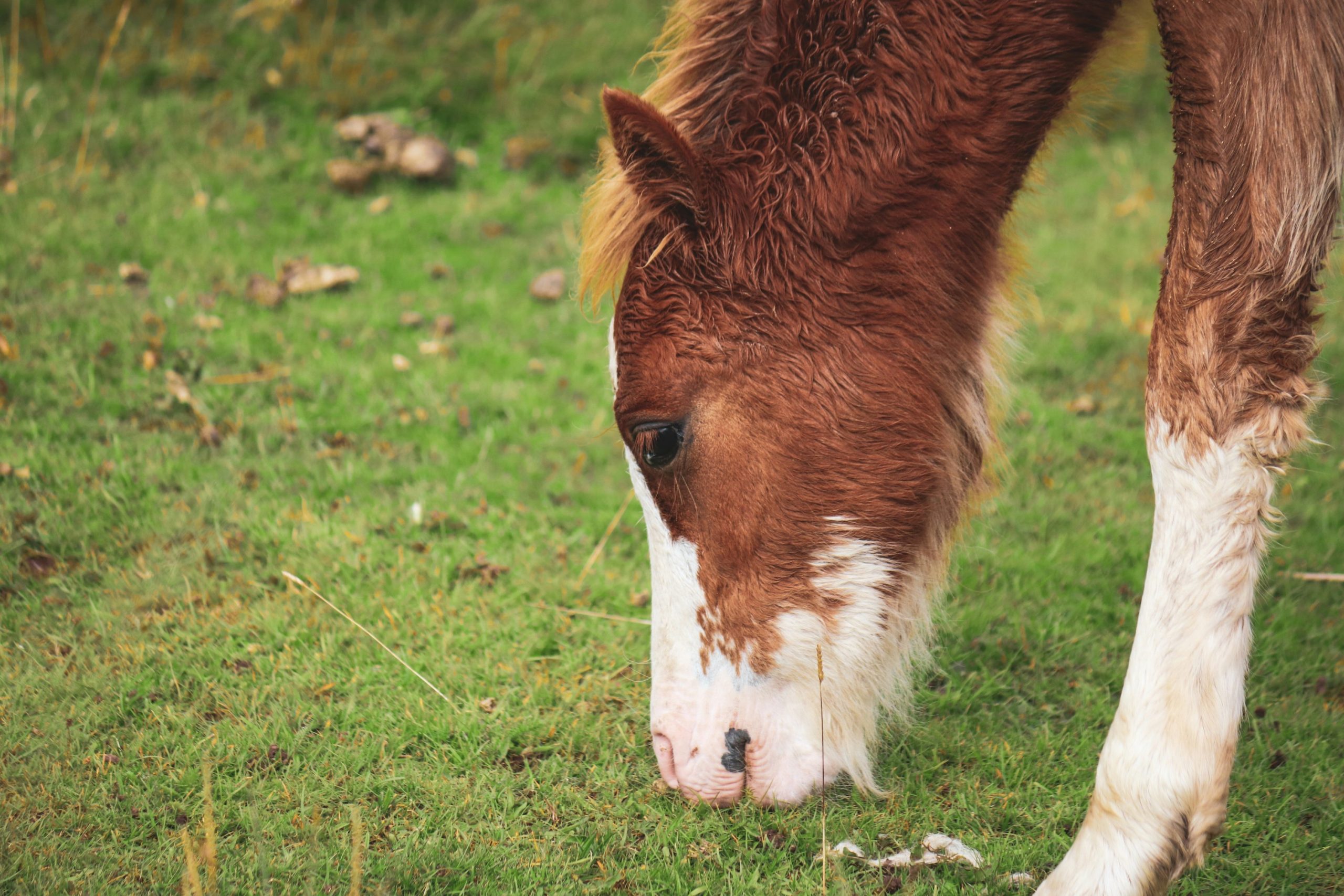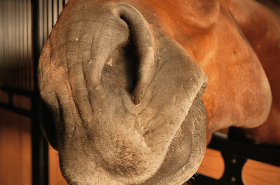An effective parasite control program is essential to every farm!
Deworming your horse is a way to control their internal parasite load. It’s extremely
important that you have a parasite control program in place. A horse that is burdened by
a heavy load will suffer internal and external consequences. Unfortunately, horses are
susceptible to over 150 species of internal parasites. Make sure you stay on top of it
before it becomes an issue!
Common Types of Parasites
Your horse is at risk for many different types of parasites. Some of the more common
ones include large strongyles, small strongyles, roundworms, bot flies, pinworms,
tapeworms, and threadworms. Frequently, they’re picked up by your horse eating from
a contaminated pasture. Others like bot flies are contracted from an insect laying eggs
on your horse’s legs and the horse licking them.
Young or old horses with weaker immune systems tend to be at a greater risk for certain
ones like pinworms, threadworms, and roundworms. They may need a strong parasite
control program to ensure their health. The growth of young horses can be stunted from
heavy parasite loads.
Signs of Parasites in Horses
Harmful levels of parasites can wreak havoc on your horse. From weight loss and
anemia to colic and ulcers, there are many ways your horse can suffer from a heavy
parasite burden. They can damage your horse’s blood vessels and intestine. Not all
horses will experience the same health concerns or symptoms though. That’s why it’s
important to have a good deworming program in place, despite your horse’s signs or
lack of.
Some obvious signs of concern include:
- A dull coat
- Pot belly
- Diarrhea
- Colic
- Itching or rubbing the top of their tail
- Decreased energy
- Loss of condition
Checking for Parasites
Before you run to the store and buy a random dewormer, it’s important you do a fecal
egg count (FEC). Your veterinarian can take a sample of your horse’s manure or you can
purchase a kit and mail off a sample. Either way, a laboratory will determine the
amount of egg shedding. This will allow you to determine when and what type of
dewormer to use. A horse with less than 100 EPG has a light parasite load, whereas
one with 500 to 1,000 EPG has a high count.
Keep in mind, some results can be misleading. A negative test only means that there
are no eggs present. Some parasites only produce eggs intermittently and some not at all.
Tapeworm eggs can even be missed altogether.

Treating Your Horse
Generally, most horse owners use an oral paste syringe or a feed pellet to deworm their
horse. Unfortunately, many parasites have become resistant to the various products
available. You must check the horse’s fecal egg count afterwards to determine how
effective the dewormer was. There is nothing available that will 100% remove all
parasites, but you can greatly reduce the amount.
Consult your veterinarian to develop a program that works best for your horse and their
needs. You must consider the FEC, age of the horse, pasture, how many are in your
herd, and a few other variables. Your vet will likely recommend alternating dewormers
to prevent drug resistance.
There are other ways to reduce your horse’s parasite load. You can regularly pick up
their manure from the pasture, feed them off the ground, rotate pastures, reduce
overgrazing, and quarantine new horses. With these extra efforts in place, you’ll be
keeping your horse herd healthy!




